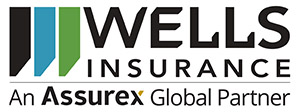When an emergency happens, we often only think about the first responders until the danger has dissipated. It’s true that the first responders serve to support you during an emergency but who cleans up the aftermath of your major life event?
Major events such as downed trees, a leaky roof, or flooding can leave you in an emotional whirlwind, wondering what to do next. Navigating the road to recovery can feel overwhelming when you’re left to figure out who to call, how to file a claim, and who to trust with putting your life back together.
Our agents come beside you as supportive, experienced guides who walk you through every phase of your emergency recovery process—we’re truly the second responders who care.
Second Responders Who Care
With many of our clients living off the Atlantic coast, storm damage from hurricanes is a very real and present danger for many. Since our headquarter office is located within this hurricane danger zone, we’ve experienced similar disasters as our clients, so we know firsthand what upheaval a powerful storm can cause. Our experience with disaster helps us relate with you in ways other insurance teams might not—with thoroughness and urgency.
[Check out our guide to the insurance claims process.]
When disasters strike or accidents occur, getting everything back to normal is at the top of anyone’s list. The team at Wells Insurance is dedicated to putting back the pieces, leaving you to worry about as little as possible. In the event of a disaster, your first call should be to first responders who can remediate any present danger. Next, we recommend that you reach out to one of our agents as soon as possible.
Depending on the scale of a disaster—hurricanes or other major storm types—the queue for claims processing could grow quite long. It’s critical to place your claim on our list at your first chance so we can begin the process of getting your world back to normal.
Document and Mitigate Future Loss
Beyond filing your claim, Wells Insurance is more than a voice on the phone. Our team acts as your support system during hard times. We look out for your best interests by ensuring you get the best possible outcome from your claim.
What can you do to improve your claim’s outcome?
You can ensure the best results by documenting as much of your damage as possible. As soon as it’s safe and you’re able, we recommended taking as many pictures of the damage as you can. Take detailed notes about the damage that’s occurred along with the dates. Keep this documentation filed away somewhere safe.
Next, do what you can to keep damage from intensifying. In some situations, there won’t be much you can do to prevent further damage. However, if it’s in your power to minimize damage, we recommend doing so.
How can you prevent further loss?
- Tarp up leaking roofs
- Clear out wet drywall to prevent mold
- Tie down loose items that might blow away in strong wind
- Keep all damaged items for the claims adjuster’s inspection
Reach out to your local Red Cross, FEMA, religious organizations, and shelters for recovery assistance such as shelter, food, or water if needed.
Preparing for the Storm
The best way to recover from a major disaster such as hurricane or flood is to plan ahead. We recommend calling one of our agents to verify the coverage you have now. The last thing you want is to find out you have gaps after it’s too late. Second, it’s a good idea to take control of what you can before a storm hits.
[Check out disaster coverage for businesses here.]
You can’t control what the weather does, but you can control how you respond to it. Here are some ways to plan before storm season arrives:
- Store one gallon of water per person per day
- Store at least a 3-day supply of non-perishables
- Keep a flashlight and batteries ready
- Put together a first aid kit
- Purchase a battery-powered weather radio
- Keep copies of personal documents in a waterproof case
- Stash away an emergency blanket and rain gear
- Buy a multi-purpose tool
- Have a professional inspect your roof or fence for weak areas
- Remove low-hanging branches or dead trees from your yard
- Install a drainage system if your basement is prone to leaks
At the end of the day, there’s no way to prepare yourself for everything. While it’s always best to have plans in place, recovering from a disaster is never easy. If you find yourself feeling lost, confused, or even hopeless—know that you’re not alone.
Your second responders at Wells Insurance will walk with you every step of the way until your life is made whole again. That’s the Wells way.


Leave a reply